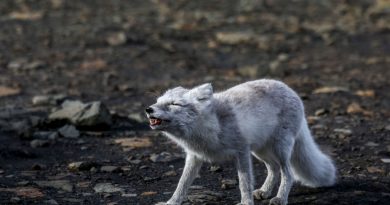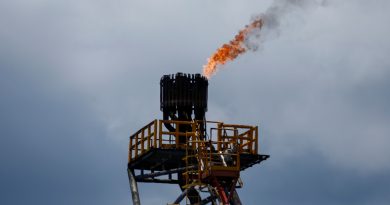Wildfires, space & shipping – Arctic roundup 2023 with Mia Bennett
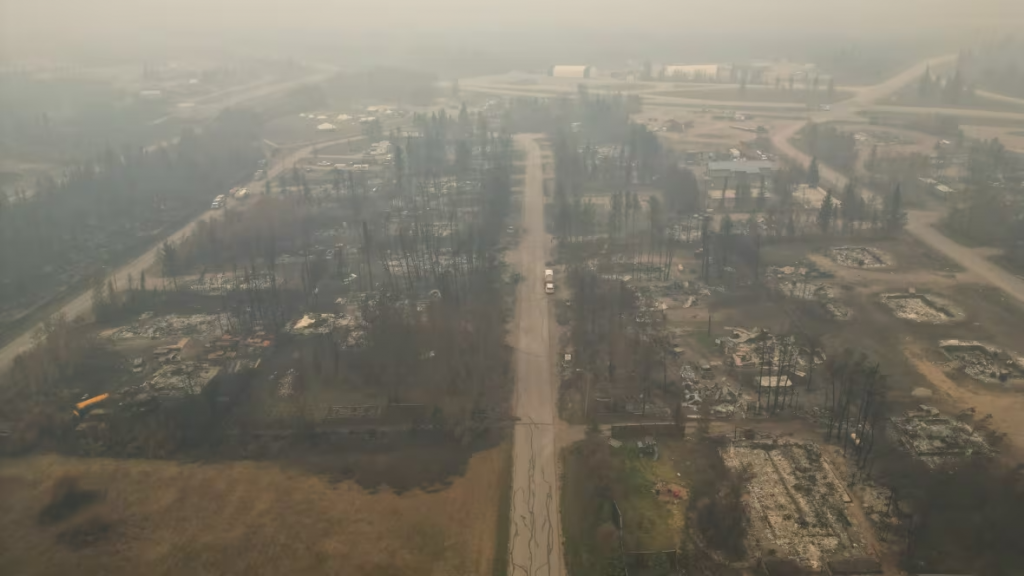
As we approach the year’s end, Eye on the Arctic is reflecting on the past 12 months in northern news.
For the 2023 edition of our annual Arctic news roundup, we reached out to northern experts, whose blogs appear on our site, for their insights on the most significant developments in business, environment, and politics of the year.
In the first installment of this year’s series, we spoke to Mia Bennett, an assistant professor in the Department of Geography at the University of Washington, and who also runs the Cryopolitics Arctic news and analysis website.
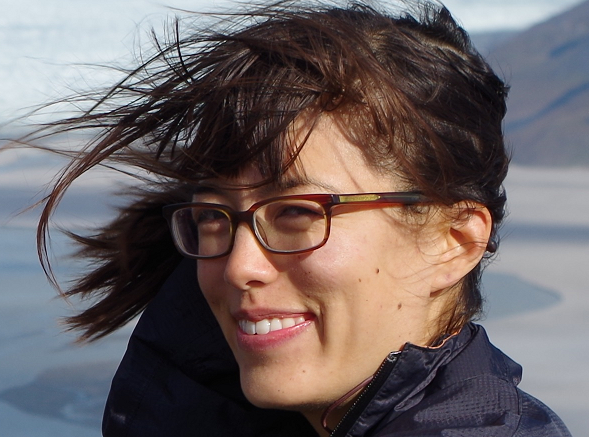
Eye on the Arctic: What were the main Arctic stories or events that caught your attention this year?
Mia Bennett: I think this was a really interesting year in the Arctic for a number of reasons:
Forest fires in the Canadian Arctic. We saw the evacuation of large cities such as Yellowknife, smaller communities like Hay River and then the destruction of almost the entire community of Enterprise. People tend to think of the Arctic as this region of ice, but now every summer, it seems like the region’s been engulfed in flames. These massive fires are not only happening in northern Canada, but also Alaska and Siberia and it’s a worrying trend. This is a big state of change environmentally that’s provoking a lot of attention, and consideration, for how we move forward.
Russia’s deployment of a non-ice class oil tanker along the Northern Sea Route. Russia did this in order to get crude oil to China which has become a major importer of Russian oil following EU and Western sanctions.Typically, the Northern Sea Route administration has had much more stringent conditions on the types of vessels that can sail through the route. So the fact that Russia was willing to make this move— and what was a very risky move— to get oil out to market shows it’s maybe throwing environmental considerations aside in order to keep the oil revenues flowing in.
Norwegian deep sea mining announcement. Deep sea mining has been progressing globally, but for it to potentially start taking place in the Arctic would be a big deal. I think Norway has geopolitical considerations in mind trying to position the country as a provider of minerals that are increasingly in demand, especially for the green transition such as manganese, which has been identified in the deposits. Norway won’t be pumping oil forever, so it’s trying to suss out other potential economic opportunities. But deep sea mining could run into a lot of conflicts with fisheries, with environmental conservation, so I think this will be a big area for debate for Norway and other players in the Arctic in the years to come.
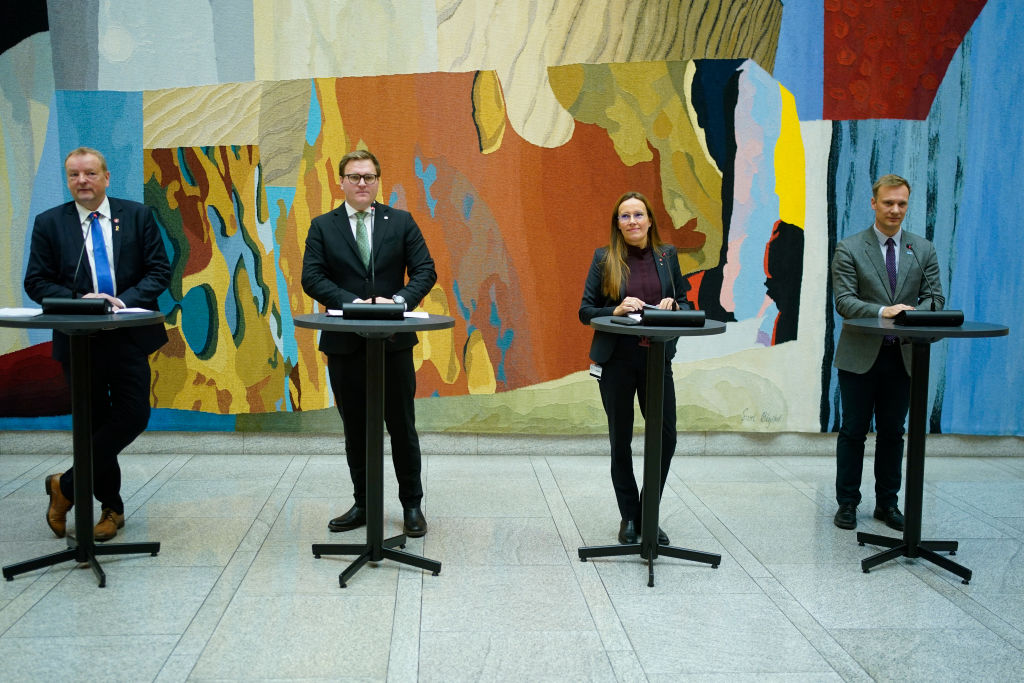
What story or event do you think needed more attention?
Spaceport openings in Sweden and Norway. I think it’s the reason the spaceports are being built, which maybe isn’t getting too much attention. There’s a lot of interest now in satellite earth observation and commercial satellite earth observation. So having more space sports that are able to launch these kinds of instruments into polar orbits, which are very useful for the earth observation, from places like the Arctic, is quite strategic.
Both the Swedish and Norwegian spaceports are taking advantage of existing infrastructure that’s been around for decades relating to astronomy and rocketry studies. But now there’s this kind of commercial impetus as well to get these spaceports going. It really demonstrates the growing importance of the development of commercial space for Arctic development and how the two frontiers are linked.
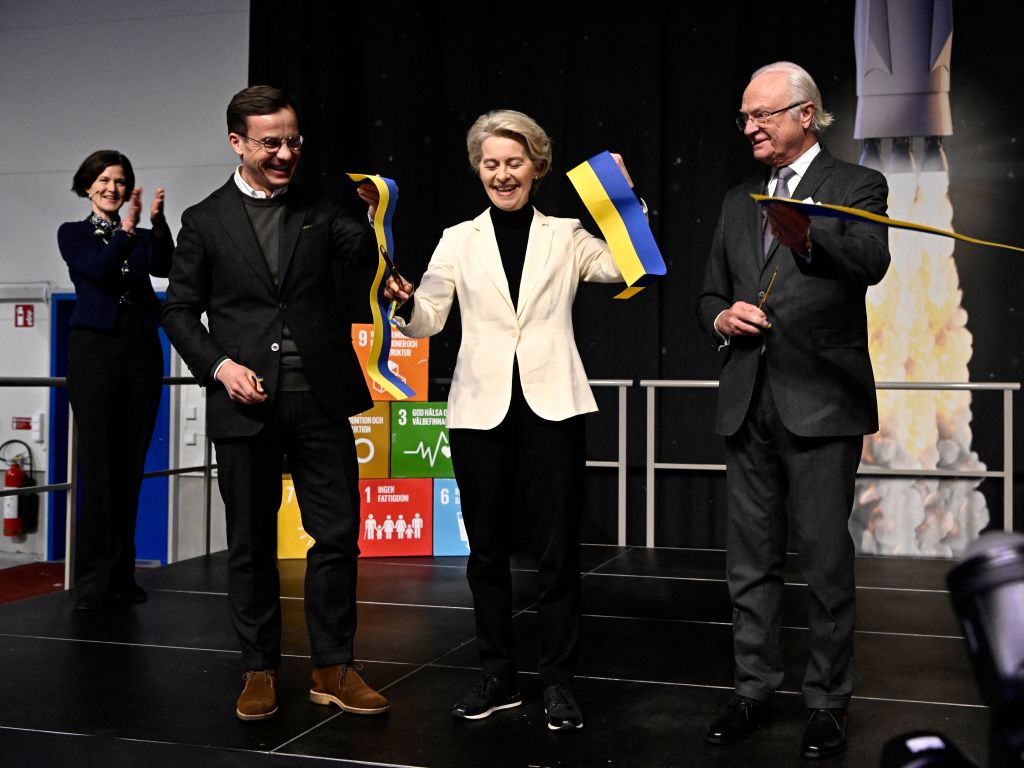
What will you be paying close attention to in 2024 when it comes to Arctic news?
The updated U.S. Department of Defense Arctic strategy. The current version of the strategy was released in 2019 at a time when the Pentagon already described the region as being in an era of strategic competition, so it’ll be interesting to see how the DOD updates it, especially in light of this past summer’s instance of a joint Russian and Chinese fleet approaching the Aleutian Islands in Alaska.
The Vostok oil project. It’s one of the world’s largest ongoing investment projects in the oil and gas sector. To give you a sense of the size, it’s equivalent to the development of West Siberia in the 1970s or the Bakken oil region in North Dakota in recent decades. Russia is hoping to start shipping 30 million tons of oil annually at first, then getting up to 100 million tons of oil by 2030, all of which will come out of a new port that’s under construction along with huge amounts of other infrastructure being built.
Environmentalists are really worried that the Vostok oil project will be a big change for the worse for the Arctic’s environment. Especially with Russia already showing it’s willing to send non-ice class tankers on the Northern Sea Route and take those risks. And with there being so little dialogue and cooperation between Russia and the West, I think there’s real cause for worry as this Vostok oil project becomes operational.
Comments, tips or story ideas? Contact Eilís at eilis.quinn(at)cbc.ca

